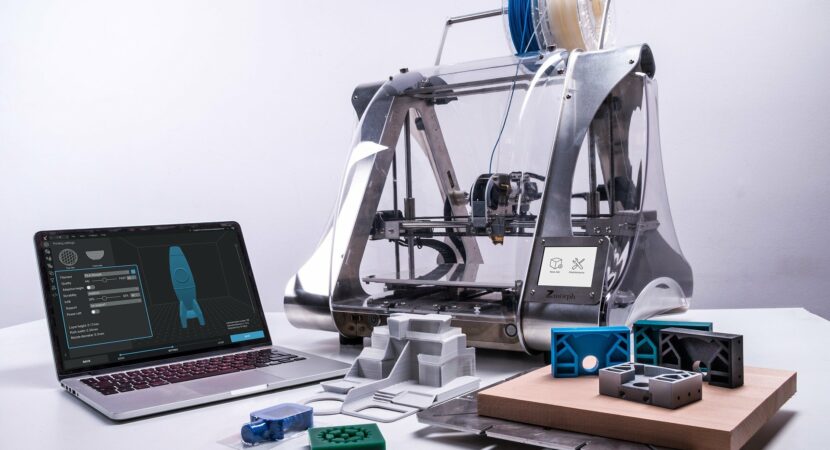
The equipment produced from 3D printing at UFES is aimed at the main challenges of operations in the oil and natural gas sector. LaMFET develops projects using technology and aims to contribute to the future of the industry.
The incentive for science and technology, even weakened in recent years, continues to generate great results in the Brazilian academic area. The Laboratory of Experimental Methods in Transport Phenomena (LaMFET), at the Federal University of Espírito Santo (UFES) is working on a major initiative for the oil and natural gas sector. This is the use of 3D printing of parts and equipment for the development of projects aimed at the main challenges of the branch.
LaMFET from UFES stands out in the use of 3D printing to create new equipment for projects in the oil and natural gas sector
Public universities in Brazil are international highlights when it comes to research and development of new technological projects for the global oil and natural gas industry.
One of the great highlights currently in the segment is LaMFET from UFES, which has been developing an initiative to create equipment and parts from 3D printing for projects in the oil and natural gas sector.
The devices created in the laboratory allow the processing and study of the main challenges currently faced in the segment's operations.
“We develop special parts based on concepts, which are used in experiments carried out in our laboratory in accordance with the research agreements we have. For this, we need to produce prototypes of these special parts that will be used in the experiments, and we have been doing this using additive manufacturing. We currently have the Objet 3Pro 30D printer, from Stratasys”, explained Professor Bruno Venturini Loureiro, coordinator of the UFES Laboratory.
Currently, in Brazil, Stratasys printers are sold by LWT Sistemas, which guarantees all the necessary support to encourage the use of 3D printing in several national projects.
Bruno Venturini Loureiro also highlights the importance of the history of each piece developed at UFES through LaMFET, since the laboratory works with long-term projects for the oil and natural gas sector.
For him, the use of additive manufacturing contributed to more agility, time optimization and practicality in the development of projects.
Thus, they develop concepts that can be used in the field of oil and natural gas from the advancement of technological maturity.
Use of additive manufacturing and 3D printing in LaMFET projects enabled even more quality in the UFES initiative
The use of additive manufacturing using photopolymerizable resins from the Objet 30Pro brought to LaMFET a substantial gain in speed and practicality in the production of special parts.
This is because, before this initiative, the laboratory depended on specific suppliers in the segment, which ended up extending the project development period.
In addition to finding suppliers, it was necessary to negotiate the delivery time and the bureaucratic process of contracting.
Now, with the use of additive manufacturing, processes can be carried out in a more agile and optimized way.
“Additive manufacturing makes it immensely easier to produce these parts. By dispensing with the search for external suppliers, we gain more agility and capacity to carry out tests of different prototype parts, due to the possibility of working with different types of resins”, stated Loureiro.
The UFES LaMFET will continue to seek new investments and improvements to ensure even more quality in the development of its projects in 2023 for the oil and gas sector.









Air Force F-16 fighters…
True friend, what they shot down were…
Air Force F-16 fighters…
I would like to know what planet you live on…
Air Force F-16 fighters…
Which genocide are you talking about? Than…
Air Force F-16 fighters…
Everything is fine, 100-year secrecy,…
Air Force F-16 fighters…
Well... It's flying scrap... Typical...
Making space for those who have never been in the military…
I'm interested
I'm a fan and I have Toyota, let's see what…
I want to buy a double cab road...
I'm looking forward to arriving in Brazil
I am interested in working in Europe. I work with…
I would love to work in another country,…
Higher education in Biological Sciences, is there a vacancy?